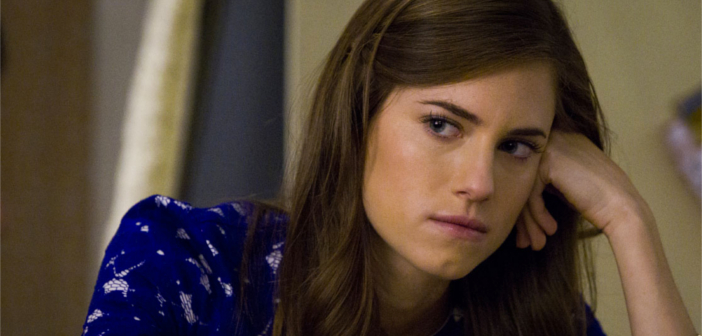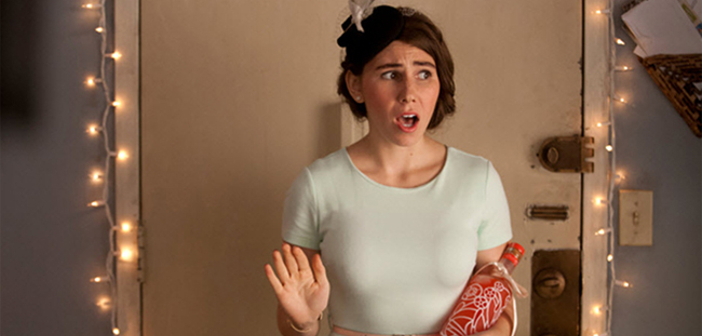TV Feature | Lena Dunham’s Girls is Self-Aware
It’s really easy to look at Girls and dismiss it as a vanity project driven by rich white New Yorkers whining about their non-problems and cannibalising themselves until none of them can stand the sight of each other. It’s easy, but does that make it true?
Well, no. The themes tackled in Girls actually explore female issues in new and compelling ways, rather than framing male narratives through female vehicles and applauding the diversity of it all. For it to be considered vain to have such a female-specific experience is the main reason I’m glad the series was made.
That being said, yes it lacks diversity and, no, it shouldn’t be given a pardon for that. I don’t think it’s okay just because it represents one minority exclusively. If entertainment makes anyone feel invisible then that in and of itself is a major flaw. But Lena Dunham does attract a disproportionate amount of criticism. Would she have been able to make this show if she wasn’t a WASP? Maybe not, but we need to blame the roadblocks getting female-driven stories over the line.

‘Goodbye Tour’, the second last episode of Girls, was the truest endpoint for a series that I’ve seen in a long time. It didn’t come across like it had simply run its course, or as a last desperate stab at rehashing its own greatest hits, or just dishing out more of the same to meet an end and wrap things up quickly. It articulates a sense of self-awareness that is intriguing – it could just be that Lena Dunham has learnt and grown with the show and this is an expression of that, but I do know that it was compelling to watch and that can really be an issue when you know something is coming to an end and expectations can sky-rocket.
The episode starts with Hannah wandering around a college campus, shoehorning her way into a chat with some millennials. She gives them some sage advice before wandering into an interview for a job she’s neither applied for, nor particularly qualified for. But stay with me: the sense of reality is coming! Dunham didn’t direct this episode but I think that was again an interesting choice, I think that it allowed time and perspective for her (and the writing team) to really craft the dialogue and it succinctly punctuates this dreamland version of New York where apartments are huge and no one has a job.
The girls happen to come together for a party Shoshanna is having – a party to which Hannah hasn’t been invited. She is affronted by this, but she doesn’t personally tell Shoshanna about big news of hers either. This strikes at the most compelling thing the series had going, and it’s why so many of us watched for 6 seasons not being fully sure if we liked the show or any of the characters: It allows them to be make mistakes. It gives them permission to be unlikeable, to not be fun around, or good for each other, without turning them into caricatures.
Shoshanna calls Hannah out, and Marnie calls a group meeting: she attempts to facilitate an open and diplomatic dialogue. Shoshanna continues to show her almost meta-awareness of the group’s friendships, Hannah feels sorry for herself and gets defensive, and Jessa targets Marnie out for the fact she’s never shit outside. In essence: you could watch just this scene and fully understand these characters. Now that is smart writing.
The episode ends with a montage and a great song. It’s cathartic and it delivers a sense of closure.

And then the closure comes undone again in ‘Latching’, the last episode of the series. It reads like a post-script, a reminder that these characters will never sort themselves out, but it still has that genuine affection for them that makes it all worthwhile. We get really powerful, cross-generational moments between Marnie and Loreen (Hannah’s mother) that save this episode from lacking relevance. Marnie starts ‘latching,’ convincing Hannah (and herself) that she is her best friend, that she needs her to function. Later, Loreen cuts through all of Marnie’s airs and graces, asking her if she’s happy. “I don’t need to be,” is her response, and again it rings true to her entire character arc throughout the series. Marnie wants to be needed, so that she can pat herself on the back and feel more together than whoever she’s holding up (or back).
Lena Dunham has said before that she wanted to try and follow a British approach to TV, meaning shortening run-times, shorter seasons and ending the series before it jumps the shark. There are those who will argue how Girls fails in this approach, but I definitely think she has helped develop these characters without fundamentally changing who they are, and I think it was a creative choice to have the group part ways so organically. As Season 6 wound to a close, the writing got tighter and tighter, and Girls reached self-awareness, finally.

